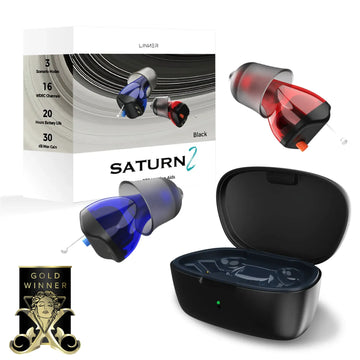Aesthetic medicine practices operate in a competitive environment where maintaining an adequate inventory of popular neurotoxins directly impacts revenue, patient satisfaction, and appointment scheduling efficiency.
The option to purchase Dysport online has created new opportunities for aesthetic clinics to optimize inventory management while potentially reducing costs. However, this convenience comes with serious responsibility-ensuring product authenticity, proper handling, and regulatory compliance.
Understanding Dysport and Its Importance in Aesthetic Practice
Dysport is an injectable neurotoxin containing botulinum toxin type A, used to temporarily improve the appearance of moderate to severe frown lines and other facial wrinkles. The product has gained significant market share in aesthetic medicine due to its diffusion properties, onset time, and effectiveness in treating various cosmetic concerns.
Like all prescription medical products, Dysport requires proper storage, handling, and administration by qualified medical professionals. The product must remain refrigerated within specific temperature ranges, used before expiration dates, and sourced through authorized distribution channels to ensure potency and safety. These requirements make supplier selection critical for practices seeking to maintain treatment quality and patient safety.
Why Aesthetic Practices Consider Online Purchasing
Several factors drive the decision to purchase Dysport online rather than exclusively through traditional local distributors.
Cost Management and Competitive Pricing
Operational costs significantly impact practice profitability, particularly in competitive markets where patient price sensitivity limits treatment pricing flexibility. Online authorized distributors may offer more competitive pricing than traditional channels due to lower overhead costs, different business models, and the ability to compare prices across multiple suppliers easily.
Price transparency in the online marketplace enables practices to identify competitive rates and negotiate better terms with suppliers. However, cost considerations must never override safety and authenticity verification, as savings from questionable sources ultimately cost far more through regulatory problems, patient harm, or reputation damage.
Inventory Flexibility and Availability
Product availability fluctuates based on manufacturing capacity, distribution networks, and demand patterns. Local distributors may experience backorders or stock limitations that disrupt practice operations. Online authorized suppliers often maintain broader inventory or access to multiple distribution points, potentially offering better product availability during shortage periods.
The ability to source from multiple authorized online suppliers provides backup options when primary suppliers face stock issues, helping practices maintain consistent treatment availability for patients.
Streamlined Ordering Processes
Traditional purchasing often involves coordinating with sales representatives, phone orders, or paper-based processes that consume administrative time. Online platforms enable direct ordering at any time, automated reordering systems, digital record keeping, and simplified comparison of products and pricing.
These efficiency gains allow practice staff to focus on patient care rather than procurement logistics, though the convenience must be balanced with proper verification and quality assurance procedures.
How to Purchase Dysport Safely: Verifying Authorized Suppliers
The question of how to purchase Dysport online safely requires understanding regulatory requirements and implementing verification procedures that ensure supplier legitimacy.
Confirm Authorized Distributor Status
Galderma, the manufacturer of Dysport, maintains specific distribution channels for its products. Practices must verify that potential suppliers are authorized distributors before making purchases. This verification involves requesting documentation of authorized distributor status, confirming supplier names appear on manufacturer lists of authorized distributors, and contacting manufacturers directly to verify supplier authorization.
Unauthorized distributors may sell diverted products obtained through gray market channels, counterfeit products, or products that were improperly stored or handled. These products pose serious patient safety risks regardless of apparent cost savings.
Verify Business Credentials and Licensing
Legitimate medical product distributors operate as properly licensed businesses with transparent operations and appropriate regulatory oversight. Essential verification steps include checking business registration with state authorities, confirming required distributor licenses with state pharmacy boards or health departments, verifying the physical business addresses and contact information, and reviewing the business's longevity and reputation.
Distributors unable or unwilling to provide verification information should be excluded from consideration, regardless of pricing or claimed product availability.
Assess Website Professionalism and Policies
Professional, authorized distributors maintain well-designed websites that provide comprehensive information about their business operations, product sourcing and handling, clear terms of sale and privacy policies, accessible customer service contacts, and transparent pricing structures.
Websites with poor design, limited information, numerous errors, or missing contact details suggest unprofessional operations that may not meet standards for medical product distribution. While website quality alone doesn't guarantee legitimacy, it provides initial screening criteria for identifying potential concerns.
Red Flags Indicating Questionable Suppliers
Recognizing warning signs helps practices avoid unauthorized or problematic suppliers when considering options to purchase Dysport online.
Pricing Significantly Below Market Rates
While competitive pricing is expected, prices substantially lower than established market rates suggest potential problems. Counterfeit products, diverted gray market goods, improperly stored products approaching expiration, or stolen merchandise typically sell at prices well below legitimate market rates.
Practices should establish baseline pricing through multiple authorized suppliers to understand normal market ranges. Outlier pricing that seems too good to be true usually indicates products that shouldn't be purchased, regardless of apparent savings.
Lack of Credential Verification Requirements
Legitimate suppliers require comprehensive credential verification before selling prescription medical products. This includes medical licenses, DEA numbers where applicable, business licenses, tax identification, and practitioner information for responsible parties.
Suppliers who don't require thorough credential verification operate outside proper channels and should be avoided entirely. The willingness to sell without verification indicates unauthorized distribution that exposes practices to significant legal and safety risks.
Unclear or Suspicious Product Sourcing
Authorized distributors clearly explain that their sourced products come directly from manufacturers through authorized channels with a documented chain of custody. Warning signs include vague descriptions of product sources, inability or unwillingness to provide lot number information, unclear storage and handling procedures, or refusal to provide documentation upon request.
Practices should never purchase products when suppliers cannot clearly document legitimate sourcing and proper handling from manufacturer to delivery.
Best Practices for Online Procurement of Medical Aesthetics Products
Successfully integrating online purchasing requires implementing procedures that protect product integrity and patient safety while gaining efficiency benefits.
Establish Supplier Qualification Procedures
Before making initial purchases from any online supplier, practices should implement qualification procedures, including verification of authorized distributor status with manufacturers, checking business credentials and licensing, reviewing customer references from other medical practices, and evaluating customer service responsiveness and professionalism.
Documentation of qualification procedures demonstrates due diligence and supports regulatory compliance if questions arise about procurement practices.
Implement Product Verification Upon Receipt
Every shipment should undergo verification procedures before products enter inventory or patient use. Essential verification steps include inspecting packaging for tampering or damage, confirming lot numbers match ordering documentation, verifying expiration dates provide adequate usage windows, checking temperature indicators if included, and examining products for proper appearance.
Any discrepancies warrant immediate contact with suppliers and potentially with manufacturers for verification. Products showing signs of compromise should never be used pending investigation and resolution.
Maintain Comprehensive Documentation
Detailed records support quality assurance, regulatory compliance, and traceability if issues arise. Critical documentation includes supplier qualification records and authorization verification, purchase orders and invoices with lot numbers, receiving inspection records, storage temperature logs, and adverse event reports if unexpected product performance occurs.
These records demonstrate appropriate procurement practices and enable rapid response if product recalls or quality issues require tracing products to specific lots or suppliers.
Understanding Regulatory Compliance Requirements
The decision to purchase Dysport online doesn't change regulatory obligations that govern medical product procurement and use.
Federal and State Regulations
Medical practices must comply with regulations governing prescription medical device procurement. This includes purchasing only from authorized distributors, maintaining required documentation, following proper storage and handling protocols, and implementing adverse event reporting procedures.
Violations through purchasing from unauthorized sources can result in regulatory sanctions, professional license discipline, and civil liability if patients experience harm from questionable products.
Professional Standards and Ethics
Beyond legal requirements, professional standards obligate practitioners to prioritize patient safety in all decisions, including procurement. This means verifying product authenticity and quality, refusing to compromise safety for cost savings, maintaining transparent practices, and implementing quality assurance systems.
Professional organizations provide guidance on ethical product sourcing that supports appropriate decision-making beyond minimum legal requirements.
Liability Considerations
Practices bear liability for products used in patient care regardless of where they were purchased. Using products from unauthorized sources that harm patients exposes practices to malpractice claims, regulatory sanctions, professional discipline, and potential criminal liability in cases of fraud or intentional misconduct.
The liability risks associated with unauthorized sourcing far exceed any potential cost savings, making proper supplier verification a fundamental risk management practice.
Making Informed Procurement Decisions
The option to purchase Dysport online offers legitimate benefits for aesthetic practices when approached with appropriate caution and verification procedures. Online authorized distributors provide valid sourcing channels that can deliver competitive pricing, convenient ordering, and adequate inventory availability.
Success requires distinguishing authorized suppliers from unauthorized sources through thorough verification, implementing quality assurance procedures for received products, maintaining comprehensive documentation supporting procurement decisions, and prioritizing patient safety and regulatory compliance above cost considerations.




![Linner Mercury Clarity OTC Hearing Aids [FSA & HSA Eligible] Linner](http://www.linnerlife.com/cdn/shop/files/Linner-Mercury-Clarity-OTC-Hearing-Aids-_FSA-_-HSA-Eligible_-Linner-110038953.webp?v=1725853434&width=360)

